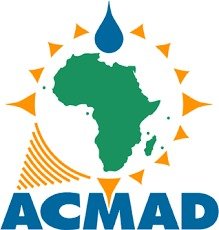World Meteorological Day 2025: ACMAD
ACMAD supports Closing Early Warning Gaps together
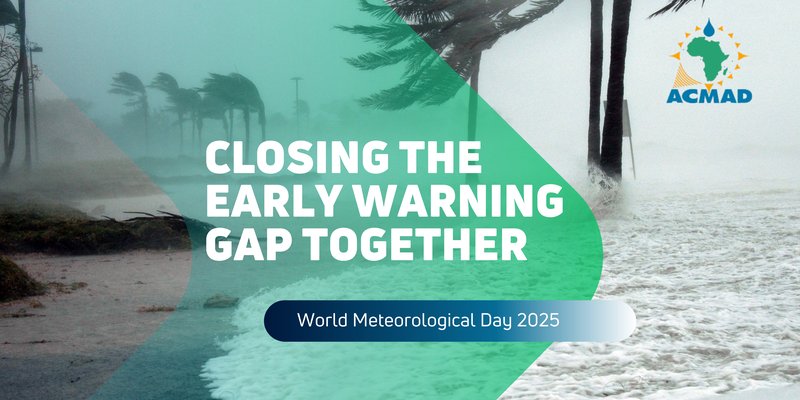
March 23, 2025
On March 23, we join the global community in celebrating World Meteorological Day. This year’s theme, “Closing Early Warning Gaps Together,” strongly resonates with our mission as we work alongside African Climate Institutions and communities to accelerate early warning systems for early action across the continent. At ACMAD, we acknowledge the partnership with global and regional climate centres to fill the data and capacity gaps and scale up early warnings systems. We are committed to leveraging the latest technologies and making data accessible to empower African nations with the tools they need to adapt to a changing climate and safeguard lives.
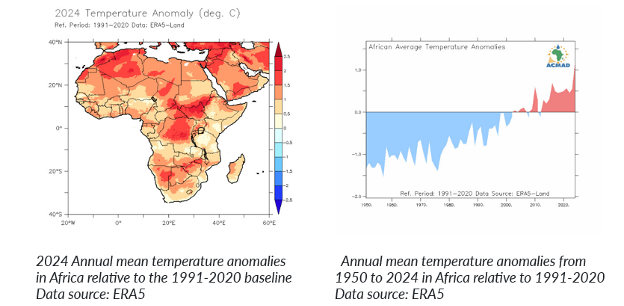
Today, early warning is more than ever a necessity. Early warning systems (EWS) are crucial in helping communities prepare and mitigate the effects of extreme weather events. Launched in 2022, the Early Warnings for All (EW4All) Initiative aims to ensure universal protection from multi hazard events through life-saving early warning systems, anticipatory action, and resilience efforts by the end of 2027. Significant progress has been made. According to a joint report from the WMO and UNDRR, as of 2024, 108 countries have reported having some capacity for multi-hazard early warning systems, more than double the 52 countries in 2015. The global average score for the comprehensiveness of multi-hazard early warning systems has also increased from 0.35 to 0.49, representing a 39% improvement.
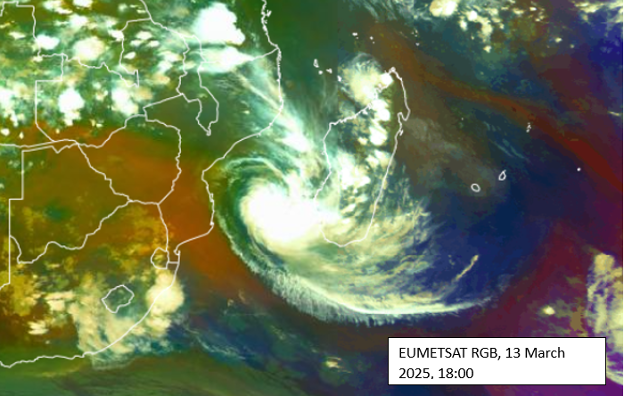
Satellite image of March 13 2025 at 18 :00: Tropical Cyclone Jude
Despite the progress made, significant gaps remain, particularly in less developed regions, including Africa. In the first half of 2024 alone, more than 848 people lost their lives due to weather-related hazards. Bridging these gaps requires strong collaboration. As part of the global EW4ALL initiative, ACMAD plays a pivotal role in the African Multi-Hazard Early Warning and Early Action System (AMHEWAS), contributing to impact-based forecasting for the continental watch and situation reports. These services are essential for informed decision-making, helping to strengthen resilience and anticipatory action across the continent.
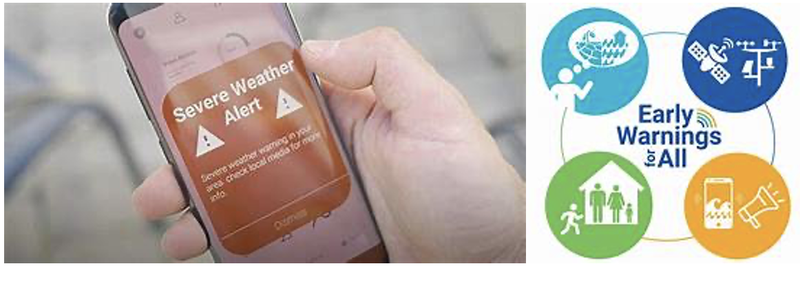
On March 23, we join the global community in celebrating World Meteorological Day. This year’s theme, “Closing Early Warning Gaps Together,” strongly resonates with our mission as we work alongside African Climate Institutions and communities to accelerate early warning systems for early action across the continent. At ACMAD, we acknowledge the partnership with global and regional climate centres to fill the data and capacity gaps and scale up early warnings systems. We are committed to leveraging the latest technologies and making data accessible to empower African nations with the tools they need to adapt to a changing climate and safeguard lives.
Our Key Priorities for the Upcoming Years:
- Artificial Intelligence (AI) Weather Models for Africa: AI offers a transformative opportunity for Africa to catch up in climate modeling. With its strong pool of young mathematicians and data scientists, Africa can develop a continental framework for operational AI-driven weather models. This includes training, validation, multi-model approaches, and enhanced user engagement.
- Heat Wave Early Warning Systems (HWEWS) for Africa: Many African communities are already vulnerable to heat extremes, with the latest IPCC report identifying North and Sahelian Africa as heatwave hotspots. ACMAD, in collaboration with partners such as WHO and IFRC, will lead efforts to operationalize a continental-scale Heat Wave Early Warning System using advanced weather and climate forecasting.
- Impact-Based Forecasting (IBF): With the increasing frequency of climate-related hazards, a more sophisticated approach to impact assessment is needed. Africa's complex and diverse landscapes—including vegetation, soil conditions, and water bodies—play a crucial role in determining the actual impacts of weather events. A fully coupled atmospheric and land surface model will enhance impact assessments and provide decision-makers with better tools for preparedness and response.
By integrating AI-driven forecasting, and improving impact-based forecasting, ACMAD is dedicated to advancing climate resilience and ensuring a safer future for African communities. Together let’s close the early warnings gaps.
